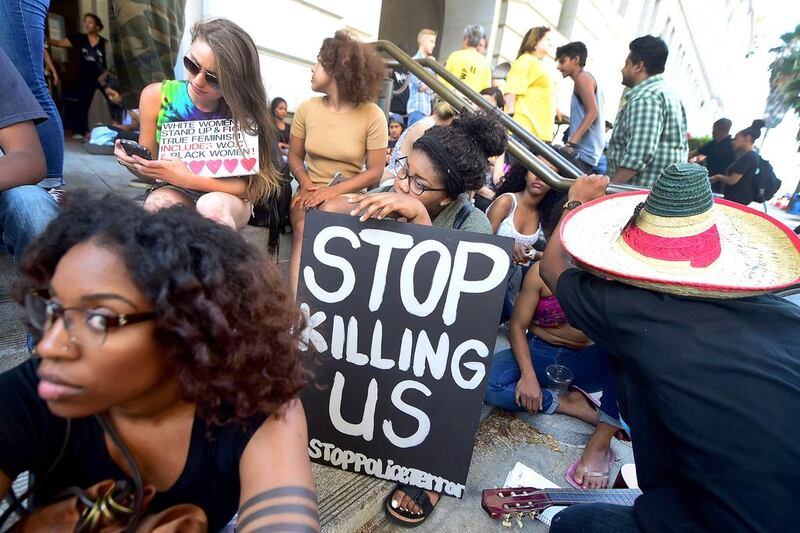When I told friends about our family’s impending move to Abu Dhabi, the first question anyone asked me is whether or not I would have to “cover”. They’d say: “Will you have to …” and then wave their hands around their heads, as if to indicate a beekeeper’s helmet or a halo. It took a while to get used to my wardrobe being the subject of such large-scale concern.
The second question, inevitably, was: “Will you be safe?” No matter what I said about the stability of the Emirates, no one seemed entirely convinced. It is a sad truth that in the West there is a general tendency to see “the Middle East” as a palimpsest of veiled women, oil wells and jihadis. It’s a perception perpetuated by much of western media and, as a result, even intelligent and well-educated people in the United States seem surprised when I tell them that I feel safe in Abu Dhabi.
Recently – sadly – I have found a new answer when people ask me about living “in such a dangerous part of the world”. I point out that people don’t get shot in Abu Dhabi and that the weapons people might have for hunting don’t look like assault rifles.
Nowhere in the world where there isn’t a war going on do people get shot with the regularity that they get shot in the United States, a country that isn’t at war but nonetheless has a steadily mounting body count.
It is a country awash in death: police shootings, mass shootings, accidental shootings (including at least 23 deaths that have occurred so far this year as the result of toddlers accidentally firing loaded guns) – the list of gun-related deaths is tragically long.
That list is so long, in fact, that we can no longer talk about “recent” gun deaths because “recent” isn’t specific enough. In just the past three weeks, there has been a mass shooting at a nightclub in Orlando, Florida; two African-American men were killed by police and the videos shown on Facebook; and five police officers were killed by a sniper in Dallas, Texas. Those are all “recent” – and those are only the stories that made the news. How many other people were shot and killed whose stories didn’t make the news? How many will die between the time I write this column and the time it gets published?
Feeling gutted by the level of violence in the US, and by the astonishing inability of Congress to effect even the most minimal change in the laws, does not mean ignoring the recent tragedies in Saudi Arabia, Bangladesh or Istanbul. It seems as if we are all living in a single ongoing moment of violence that never fades into the past: bombings and shootings and death merge into one another, endlessly.
When terrorists explode bombs or take hostages in cafes, law enforcement swings into action by trying to rescue people and stave off further disasters.
In the US, however, to the disbelief of the civilised world, nothing happens to prevent more killing. You can browse for guns in most big Wal-Mart stores, including an entire section of “junior guns” that come in “fun” patterns and colours.
Gun ownership does not make you safer, despite the National Rifle Association’s claims to the contrary. Instead, the country’s manic desire for weaponry means that the country is becoming less and less safe – legally. It seems to me that freedom doesn’t come from carrying a gun; it comes, at least in part, from knowing that you’re safe.
Last December, a few weeks after the shootings in San Bernardino, California, we were getting ready to travel to New York for the winter holidays. My younger son said: “Is it safe there now?”
I told him that of course we’d be safe, but his question has stayed with me. It’s a question he’s never asked about Abu Dhabi.
Deborah Lindsay Williams is a professor of literature at NYU Abu Dhabi





